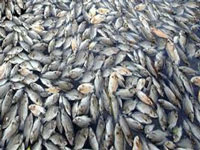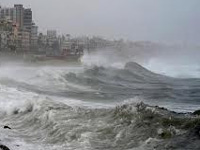To save the planet, first save elephants
Wiping out all of Africa’s elephants could accelerate Earth’s climate crisis by allowing 7% more damaging greenhouse gases into the atmosphere, scientists say. But conserving forest elephants may reverse
Wiping out all of Africa’s elephants could accelerate Earth’s climate crisis by allowing 7% more damaging greenhouse gases into the atmosphere, scientists say. But conserving forest elephants may reverse
Research into how Hybrid Organic-Inorganic Perovskites (HOIPs) turn sunlight into energy could open door to far higher efficiency solar panels Researchers investigating a new class of solar cell ingredients
Limiting global temperature rise to 1.5C has long been the goal of developing countries and those most at risk from climate change. Since becoming enshrined in the Paris Agreement last December, the 1.5C
University of Adelaide researchers have made a breakthrough in investigating salt tolerance in plants which could lead to new salt tolerant varieties of crops, and also answer unresolved questions in plant

A new study has found evidence that health becomes endangered when ageing cells lose control of rogue elements of DNA called transposons. Research has shown that a low-calorie diet, a key intervention

Scientists at Jadavpur University have developed a harvester which uses raw fish scales, which can generate biodegradable energy to power next-gen medical devices like a pacemaker. This technology will
PARIS – The same gravitational force that creates high tides when the moon and sun align may also play a role in triggering major earthquakes, according to a study released Monday. Better understanding
At one such market, researchers collected a new species of maroon-brown crab with reddish-purple claws and legs, which belongs to both a new species and a new genus. The scientists have named the newly
A team of researchers at Jadavpur University here has developed a biodegradable energy harvester from raw fish scales that could in future replace pacemaker devices for the heart. The energy harvester

Research on typhoons has led scientists to believe that China, Taiwan, Japan and the Koreas will experience more violent typhoons. China, Taiwan, Japan and the Koreas will experience more violent typhoons
HONOLULU – Global warming is making the oceans sicker than ever before, spreading disease among animals and humans and threatening food security across the planet, a major scientific report said on Monday.